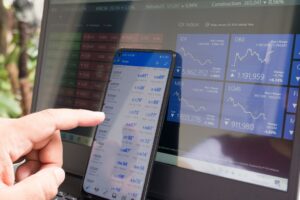Risks and Benefits of Margin Trading in Forex
Margin trading is a powerful tool that allows forex traders to multiply their buying power by borrowing money from their broker to open larger positions. While it can significantly enhance potential profits, margin trading also comes with its fair share of risks. In this article, we will explore the risks and benefits of margin trading in forex, helping traders make informed decisions about using this strategy.
Benefits of Margin Trading:
1. Increased Buying Power: One of the main advantages of margin trading is the ability to control larger positions with a smaller amount of capital. This can amplify potential profits as even small market movements can result in significant gains.
2. Diversification: Margin trading allows traders to take advantage of multiple trading opportunities simultaneously. By diversifying their positions, traders can spread their risk across different currency pairs and potentially increase their chances of making profitable trades.
3. Leveraged Returns: Margin trading offers the potential for leveraged returns, meaning that traders can generate higher profits compared to their initial investment. This can be particularly beneficial for experienced traders who have a strong understanding of market trends and can make well-informed decisions.
4. Short Selling Opportunities: Margin trading also enables traders to profit from falling markets by short selling. This means that traders can sell a currency pair that they do not own and buy it back at a lower price, pocketing the difference.
Risks of Margin Trading:
1. Increased Losses: While margin trading can amplify profits, it can also dramatically increase losses. When using leverage, even a small adverse market movement can wipe out a significant portion of the trader’s capital. It is crucial for traders to set appropriate stop-loss orders and manage their risk effectively to mitigate potential losses.
2. Margin Calls: Margin accounts require traders to maintain a minimum level of equity to support their positions. If the account falls below this threshold due to losses, the broker may issue a margin call, requiring the trader to deposit additional funds to restore the account’s equity. Failure to meet a margin call can result in the broker closing positions and potentially incurring further losses.
3. Emotional Impact: Margin trading can amplify the emotional impact of trading. When trading with borrowed funds, traders may be more prone to making impulsive decisions driven by fear or greed. It is essential to maintain discipline and stick to a well-defined trading plan to avoid making hasty and irrational choices that can lead to substantial losses.
4. Interest Costs: Margin trading involves borrowing money from the broker, which incurs interest charges. These costs can eat into profits, especially if positions are held for an extended period. Traders should carefully consider the interest rates charged by their broker and assess whether the potential gains outweigh the borrowing costs.
5. Lack of Experience: Margin trading requires a deep understanding of the forex market and the ability to analyze market trends effectively. Novice traders who lack experience may find it challenging to manage the risks associated with margin trading. It is advisable for beginners to gain proficiency in regular trading before venturing into margin trading.
Conclusion:
Margin trading in forex can be a powerful tool for experienced traders seeking to maximize their profits. It offers increased buying power, leveraged returns, and the ability to profit from falling markets. However, it also comes with significant risks, including the potential for increased losses, margin calls, emotional decision-making, interest costs, and the need for expertise in forex trading. Traders should carefully assess their risk tolerance, establish a solid risk management strategy, and acquire sufficient knowledge before engaging in margin trading.





